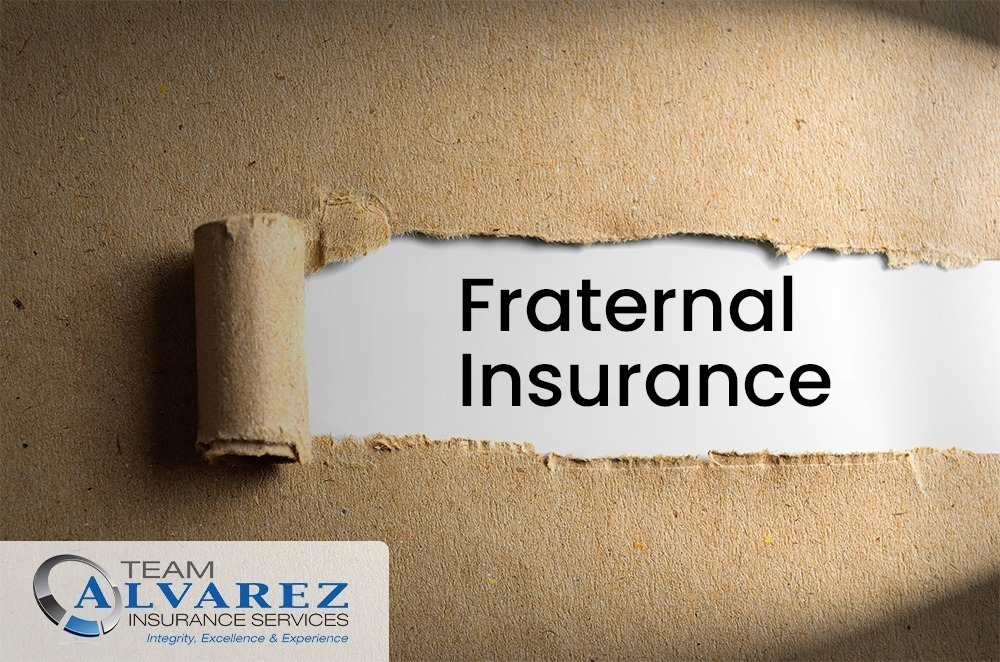Have You Heard of Fraternal Benefit Society Life Insurance
These groups can sometimes provide excellent networking opportunities, allowing graduates to make an easier transition into the industry.
Trade guilds, which were forerunners of trade unions and made up of professionals from a specific trade, are other fraternal organizations, as are organizations like the Freemasons.
We’ll explore these companies to discover how their coverage and advantages go beyond the obvious.

What Are Fraternal Benefit Societies?
When you first hear the word “fraternal benefit society,” you might associate it with belonging to a club, which is accurate in most cases.
A contract in which a fraternal benefit society covers the life of a member in exchange for monthly contributions to the organization is known as fraternal life insurance.
The proceeds are subsequently used to carry out the fraternal group’s member-supported advocacy activities, which can be social, educational, moral, patriotic, religious, or intellectual in nature.
Most of the fraternal life insurance contracts include a number of additional advantages.
Fraternal insurance works on the principle that members of an organization can purchase coverage that is underwritten for the entire group.
This is the same logic that applies to acquiring group insurance as a benefit of working for a company.
The insurance firm earns a big quantity of business from this deal since it underwrites the entire group at once.
Members of the group can get health insurance, life insurance, and disability insurance in the exchange.
You may be devastated to know that a life insurance company provides a lot of benefits.
Fraternal benefit insurers are most known for providing life insurance, but they also offer final expense plans, annuities, and even burial trusts.
What we like about Fraternal societies’ insurance is that differs from traditional carriers’ insurance because fraternal societies combine coverage with various financial rewards and access to various programs.
Another added benefit is that Fraternal carriers are tax-exempt and offer competitive product cash values, as well as non-guaranteed income in many cases.
Furthermore, fraternal benefit societies combine insurance and community involvement by allowing members to volunteer and participate in charity projects.

Is Fraternal Insurance Suitable for My Clients?
As previously said, the members of these organizations share the same lifestyle, so keep that in mind when recommending fraternal insurance to a customer.
According to the American Fraternal Alliance, fraternal benefit organizations contribute more than 80 million hours of community service and provide more than $533 million to philanthropic programs.
Some of your clients may only require their insurance, which is fine! Clients seeking more from their insurance coverage may be excellent candidates for a fraternal benefit society product.

What benefits do Fraternal life insurance plans offer?
Purchasing insurance through a fraternal organization might provide you with a variety of advantages.
The most common benefit of getting this form of insurance, for example, is that you can get a discount.
Because of the extra volume, they may bring in by giving their policies to groups; insurance firms frequently grant big discounts on these sorts of coverage.
Another advantage is that you might get authorized even if you have health problems. These guidelines can help ensure that your application is approved.
In addition to the coverage your client has purchased, all of that generosity comes with excellent benefits for your client.
Some benefits are only available to policyholders, such as
- Medical equipment discounts.
- Emergency assistance grants
- Dental, vision, and lab discounts
- Prescription and well-being benefit
Other benefits that the policyholder’s family may get include
- Fun family event opportunities.
- Student loan forgiveness
- Academic scholarships and grants
You may also receive insurance benefits as part of your membership, depending on which fraternal order you join.
You do not need to pay for a specific insurance policy with this approach. Instead, you merely pay your dues and assist the fraternal organization as needed.
Once you become a complete member, you may be eligible for insurance benefits without having to worry about paying your payments.
And they are just a few of the benefits and rewards that fraternal insurance companies can provide!

Types of Life Insurance
To help secure your loved ones, there is a range of life insurance policies available.
Various types of life insurance.
Life insurance comes in a variety of forms.
- Term life insurance.
- Whole life insurance.
- Variable life insurance.
- Universal life insurance.
- Guaranteed issue life insurance.
- Group life insurance.
- Simplified issue life insurance.
All types of life insurance can be categorized into two parts:
Term life insurance.
These insurance are suitable for most people and last for a certain number of years.
If you do not die within the time period mentioned in your policy, it will expire, and you will not receive any benefits.
Permanent life insurance.
This insurance covers you for the rest of your life and typically includes a cash value component that you can take or borrow against while you’re still alive.
There are different types of ways life insurance policies can be used.
Universal life insurance
A universal life policy offers the same cash value and lifetime coverage option as a whole life policy.
However, there is one significant distinction between whole life and term life insurance: premiums are changeable.
With a universal insurance, you can adjust the amount you pay into the policy as needed, as long as you stay within the policy’s restrictions.
Paying less now could lead to you having to pay more later to maintain your coverage.
This sort of coverage may adapt to your changing circumstances while still offering the same cash value increase as a whole life policy.
Whole Life Insurance
Whole insurance is a form of life insurance that covers the insured individual for the rest of his or her life.
Whole insurance premiums are fixed (the same amount is required each year) and build cash long-term care.
The life insurance company might also give you dividends if you have whole life insurance.
Whole life insurance policies guarantee that the cash value will grow at least at a defined rate if all payments are made on time, but dividend payments will increase the rate at which value can grow.
The dividend payment amount is determined by the company’s performance in the preceding year, and the rate is multiplied by the policy’s current cash value.
Variable Life Insurance
In the same way that premium payments are changeable and insurance premiums climb over time, variable life insurance is similar to universal life insurance.
Variable universal life insurance has a cash value account with no fixed or guaranteed rate of return, which is the fundamental difference between the two types of plans.
This sub-accounts invest in a wide range of asset classes comparable to mutual funds.
The cash value’s increase (or loss) is determined by the success of the variable accounts in the market.
Variable life insurance has a competitive edge over universal life insurance since the stock market has historically exceeded universal life’s guaranteed funds.
A variable life insurance policy’s risk is that the market will fall, leaving the owner with a poor-performing policy.
Guaranteed issue life insurance
No medical exams or health questions are required for guaranteed issue life insurance.
In other words, you can’t be denied coverage if you’re in the acceptable age range, which is often 40 to 85.
However, this is a costly method of purchasing life insurance, and the coverage amounts are typically minimal.
Furthermore, many policies have grade accelerated death benefits riders, which means that if you pass away during the first few years of owning the insurance, your beneficiaries may only receive a portion of the payout.
This sort of life insurance is frequently purchased by people who have been turned down for life insurance elsewhere owing to their health but wish to cover last expenses such as burial bills.
Group life insurance
This is group life insurance that you purchase through your employer as part of your employee benefits package or through a member organization.
Although some employers also provide permanent coverage as an optional (employee-paid) benefit, most group life insurance costs is term.
Individual policies, purchased through agents or directly from insurance companies, were the most typical way to obtain life insurance until recently.
More Americans are now covered by group policies based on their place of employment.
Because the employer or group is basically “purchasing in bulk,” these plans have comparatively low rates.
Simplified issue life insurance
Life insurance with a simple issue If you have a simplified issue insurance, you won’t have to take a medical exam.
You might be asked a few health-related questions, and your application could be turned down based on your answers.
Instant-approval life insurance policies use short, online health surveys and analytics, and big data to expedite the application process.
What are the perk for Agents that Partnered with Fraternal Benefit Societies?
Not only are there reasons for your clients to choose a fraternal benefit society for their life insurance coverage, but there are also reasons for you, as an agent, to work with them!
Fraternal insurance carriers can offer more competitive goods and prices than national carriers and strong financial strength, and a large surplus if they invest wisely.
They also provide personal service and support to their associated agents in the form of personal product training and marketing campaigns.
Some fraternal carriers even offer bonuses to agents, including as cross-selling opportunities and trips!
As we discovered in this post, there’s a lot more to fraternal benefit society insurance than you might assume.
The potential to provide your clients with a high-quality insurance policy that includes community giving possibilities and a diverse set of perks is a once-in-a-lifetime opportunity.
Don’t miss out on the opportunity to offer fraternal insurance!





